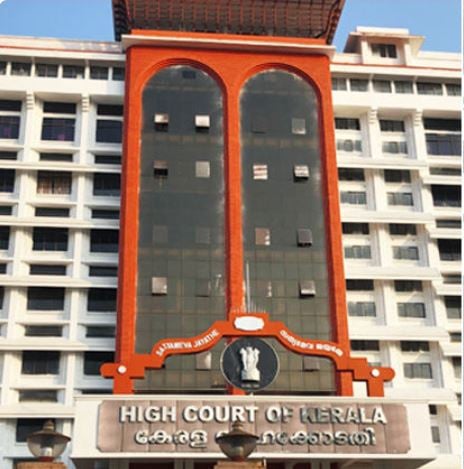The High Court of Kerala on Friday refused to grant an interim order on a petition seeking stay on the release of the controversial multi-lingual film ‘The Kerala Story’, which hit the theatres today.
The Division Bench of Justice N. Nagaresh and Justice Sophy Thomas, after watching the trailer of the movie, observed that there was nothing objectionable in it.
Justice Nagaresh, while stating that there was something called the freedom of speech and expression, said the filmmakers have artistic freedom, which this court needs to balance.
The Bench, however, recorded the submission made by the producer of the film that the teaser of the film, which claimed that over 32,000 women from Kerala were recruited to ISIS, will be removed from their social media accounts.
Noting that the flick only said that it was ‘inspired’ by true events, the High Court observed that the Central Board of Film Certification (CBFC) had certified the film for public viewing.
Asking the petitioner about the part of the flick which was against Islam, Justice Nagaresh said there was no allegation against a religion, but only against the organisation Islamic State of Iraq and Syria (ISIS).
On request of the petitioners, the High Court viewed the trailer in open court today. It said this was a work of fiction. There were no ghosts or vampires, but a large number of movies were showing the same.
It further said that there were several such movies in Hindi and Malayalam, wherein Hindu Sanyasis were portrayed as smugglers and rapists. The High Court further mentioned a famous award-winning film, saying that it showed a pujari spitting on an idol. No one said anything then and no problem was created, noted the Bench.
It said in Kerala, people were so secular.
Representing one of the petitioners, Senior Advocate Dushyant Dave contended that the impact of the movie was much greater on the minds of people today than books could ever have. He said this may create a serious public law and order problem.
The Senior Counsel said he was also a strong advocate of freedom, but if that freedom was likely to poison the minds of innocent people and threaten public order, then such freedom must be curtailed.
Calling fraternity a part of the basic structure in the society, Dave said that the constitutional idea of fraternity must be kept in mind while examining the matter.
The High Court remarked that the film was not based on historical facts, but was a mere story.
Dave asked whether the purpose of fiction was to portray the Muslim community as villains. He said isolated incidents could not be made to seem like the truth and made into a movie.
Senior Advocate George Poonthottam, also appearing for the petitioners, submitted that the theme of the flick was to project Kerala as a centre of all terrorist activity.
The Bench observed that merely because some religious head was shown in a bad light in a fictional story, could not be the basis to ban a movie.
Also representing one of the petitioners, Advocate P.A. Mohammed Shah stated that the impression this movie was creating would lead to parents thinking that they cannot send their children to hostels in which Muslim students stay, since their children would get converted.
The film said only Hindu and Christian girls were being targeted and their parents should be careful. If it was being projected as a true story, what would be the mindset of parents, he asked.
Advocate Kaleeswaram Raj submitted that this was a novel case, where the Court was being called upon to consider whether hate speech could be in the form of art.
Representing the producer of the movie, Senior Advocate Ravi Kadam contended that they have put a disclaimer, stating that it was a work of fiction.
He said the film was only ‘inspired’ by true events. As per the Senior Counsel, things were always dramatised in a movie, otherwise no one will watch it.


